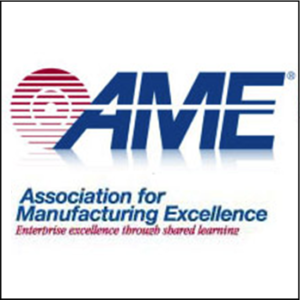March 2012
Organizations aim to create “literate, career-ready citizens”
 Baltimore, MD – March 21, 2012 – The International Dyslexia Association (IDA) has partnered with the Association for Manufacturing Excellence (AME) to urge Congress to pass the Literacy Education for All, Results for the Nation (LEARN) Act. LEARN Act is a comprehensive, pre- K through grade 12 bill that features writing and reading and offers alignment from early childhood across all grade levels and across all subject areas with support for state literacy plans and money to districts for their self-defined needs.
Baltimore, MD – March 21, 2012 – The International Dyslexia Association (IDA) has partnered with the Association for Manufacturing Excellence (AME) to urge Congress to pass the Literacy Education for All, Results for the Nation (LEARN) Act. LEARN Act is a comprehensive, pre- K through grade 12 bill that features writing and reading and offers alignment from early childhood across all grade levels and across all subject areas with support for state literacy plans and money to districts for their self-defined needs.
The United States had long been number 1 in the world in education but in the last several years has dropped to number 24 out of 34 countries, according to results from the 2009 Program for International Student Assessment (PISA), which compares student success in reading, math and science among 34 developed nations.
“Each year roughly 1.3 million students drop out of high school unable to keep up with curriculum demands. To put this in context, had the high school students who dropped out of the Class of 2009 graduated, the nation’s economy would have benefited from nearly $335 billion in additional income over the course of their lifetimes. In this decade 13 million students will have dropped out of school equating to a massive loss of $3 trillion. The high school dropout rate has become a national crisis. “Literate, career ready citizens” are America’s best economic stimulus.
“The fact is that third grade students not proficient in reading are all too likely to drop out of high school and become the nation’s least-skilled, lowest-paid , least-productive, and most-costly citizens of tomorrow,” according to Cinthia Haan, Vice President of the IDA and Chair of the Haan Foundation for Children.
The IDA believes that literacy is the single most important factor to student academic success and can be accomplished in three stages: (1) passing the federal LEARN Act; (2) states passing literacy laws that require high standards to prepare, support, reward, and advance high-quality teachers and school-based leaders; and, (3) students receiving classroom systems of support in reading that ensure grade level proficiency.
“Success in today’s 21st century global economy requires students to first develop oral language, reading and writing abilities that are central to an education. Investing in world-class public education and human capital is the only option to sustain innovation and international competitiveness if we wish to once again become the world’s leading manufacturing powerhouse,” said Glenn Marshall, Director at Large, AME. “Education outcomes in America must change immediately if we are to remain a vital economy. The LEARN Act can benefit tens of millions of students who are at risk for literacy and education failure.”
For the past two years, AME has been leading the “Revitalization of Manufacturing” initiative, which encourages policy-makers, educators, and industry associations and operations executives to join or develop efforts focusing on local and state job creation. The revitalization of manufacturing jobs strategy calls for putting people, schools, businesses and the government to work creating the necessary infrastructure to support this bold initiative. Its overarching goal is to produce literate, “career-ready citizens” capable of joining the workforce and enabling U.S. manufacturers to once again lead the designing, building and exporting of quality products and services around the globe.
“The LEARN Act and model language for state literacy laws are products of the IDA’s goal to implement a set of ‘gold’ standards in education, so that parents know the institutions and professionals to whom they entrust their children are providing them with the best possible chance to succeed,” said Haan. “It’s a goal that is reflected in most all of the work we do to highlight literacy and education as the Civil Right of the new century.”
About the International Dyslexia Association:
The International Dyslexia Association is a non-profit, scientific, and educational organization dedicated to the study and treatment of dyslexia as well as related language-based learning differences. The IDA operates 45 branches throughout the United States and Canada and has global partners in eighteen countries, including Australia, Brazil, England, Germany, Ireland, and Japan.
For additional information please contact Lisa Harlow of Clapp Communications at (410) 561-8886 or via email at lisa@barbclapp.com.
About the Association for Manufacturing Excellence
The Association for Manufacturing Excellence (AME) is the premier not-for-profit organization dedicated to the journey of continuous improvement and enterprise excellence. AME’s membership is composed of a trusted network of volunteers who are committed to leveraging the practitioner-to-practitioner and company-to-company shared learning experience. Through engaging workshops, seminars and plant tours, and industry-leading conferences, AME members are continually discovering and implementing new continuous improvement strategies and best practices. AME offers its members a multitude of valuable resources to help them stay abreast of current industry developments, and improve the skills, competitiveness and overall success of their organizations. Join AME in leading the “Revitalization of Manufacturing”. For more information, visit www.ame.org or email info@ame.org.
Cinthia Haan, Vice-President of the International Dyslexia Association (IDA), has worked tirelessly on behalf of IDA to partner with the Association for Manufacturing Excellence (AME) to urge Congress to pass the LEARN Act. Cinthia is the co-founder and chair of The Haan Foundation for Children and currently chairs IDA’s Marketing and Communications Committee.
Copyright © 2012 International Dyslexia Association (IDA). We encourage sharing of Examiner articles. If portions are cited, please make appropriate reference. Articles may not be reprinted for the purpose of resale. Permission to republish this article is available from info@interdys.org.

